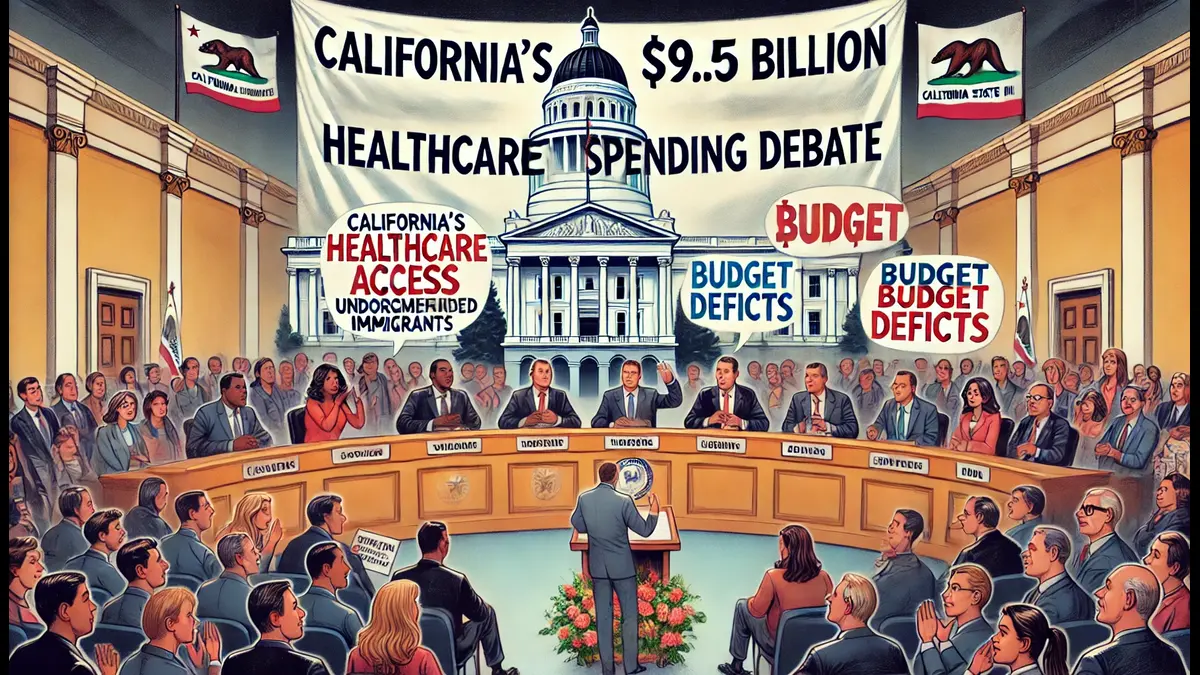California has once again found itself at the center of a political and financial controversy. The state, which is currently grappling with a staggering $30 billion budget deficit, has allocated a massive $9.5 billion to provide healthcare for illegal immigrants.
This decision has sparked heated debates among policymakers, taxpayers, and even high-profile figures like Elon Musk, who labeled it “unsustainable” on X (formerly Twitter).
Breakdown of the $9.5 Billion Spending
According to the California Department of Finance, the state’s Medi-Cal program—its version of Medicaid—will account for the entire $9.5 billion expenditure. Out of this amount, $8.4 billion will come directly from the state’s general fund. This funding aims to provide free medical services, including emergency treatments, preventative care, and prescription drugs, to undocumented immigrants residing in the state.
The expansion of Medi-Cal for illegal immigrants has been a gradual process. In 2016, California began covering undocumented children. By 2022, the program had extended to include illegal immigrants aged 50 and above. As of 2024, it now covers all low-income undocumented adults, making California the first state in the U.S. to offer such comprehensive healthcare benefits.
California Budget Crisis
While the intent behind this initiative is to provide healthcare access to all residents regardless of immigration status, critics argue that such spending is financially reckless, especially given the state’s $30 billion budget deficit.
California Governor Gavin Newsom initially projected a budget surplus but later revised his estimates, revealing a massive shortfall. According to the state’s financial records, rising costs of social programs, declining tax revenues, and economic downturns have contributed to the deficit.
Public and Political Reactions
The healthcare spending plan has received mixed reactions. Democratic lawmakers and immigrant advocacy groups argue that providing healthcare to illegal immigrants is a humane and necessary step. They claim that denying healthcare access would result in higher long-term costs due to untreated illnesses and emergency room visits.
However, Republican lawmakers and many taxpayers strongly oppose this expenditure. Critics argue that California should prioritize legal residents who are also struggling with healthcare costs. Some have suggested redirecting funds toward addressing the state’s homelessness crisis, education system, and public safety instead of providing benefits to illegal immigrants.
Elon Musk’s reaction to the news has further amplified the controversy. His “unsustainable” remark resonated with many taxpayers and policymakers who view this level of spending as financially irresponsible. Musk, a vocal critic of excessive government spending, has repeatedly argued for fiscal responsibility, especially in states like California, where high taxes and rising living costs have led to an exodus of residents and businesses.
Potential Economic Impact
Economists have weighed in on the potential consequences of California healthcare spending. Some experts warn that increasing social spending while running a deficit could lead to tax hikes or budget cuts in other critical areas. Others argue that investing in preventative healthcare could ultimately reduce overall medical costs by minimizing emergency treatments and hospitalizations.
Additionally, there is concern about the long-term sustainability of such policies. If other states follow California lead, it could create a nationwide debate on immigration and healthcare spending. Some believe this could put pressure on the federal government to address immigration reform and healthcare access at a national level.
Conclusion
California decision to allocate $9.5 billion for illegal immigrants’ healthcare amid a $30 billion budget deficit has ignited a major controversy. While proponents argue that healthcare is a basic human right, critics believe that the financial burden is too high, especially during an economic downturn.
Elon Musk’s “unsustainable” comment reflects the concerns of many taxpayers who worry about the long-term impact of such policies. As California navigates its budget crisis, the debate over immigration, healthcare, and fiscal responsibility is unlikely to subside anytime soon.
The broader question remains: Should states prioritize healthcare access for all, regardless of immigration status, or should financial constraints take precedence? With a growing deficit and increasing public backlash, California’s leadership faces tough decisions ahead.
Sources:
- X.com – Elon Musk’s Reaction
- Fox News – Breakdown of Spending
- SF Chronicle – Budget Deficit
- California Healthline – Medi-Cal Expansion
- NY Post – Public Reaction
- Vox – Elon Musk’s Fiscal Concerns
- Health Affairs – Economic Impact
This issue is far from resolved, and the discussion will likely continue as California reassesses its financial strategies.
